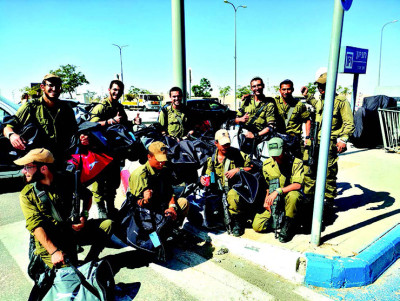
Recently, I’ve been reading the Artscroll biography of Rav Mordechai Gifter zt”l by Rabbi Yechiel Spero, and there was a particular quote that caught my eye. A talmid was relating over what Rav Gifter would say to the students during the Rosh Hashanah/Yom Kippur period. He writes, “On the night of Yom Kippur, he would speak to us before the yeshivah said t’hilim for all Jews who are in distress and captivity. With a tear filled, choked voice, he would quote to us the famous words of Rav Itzele Volozhiner in his introduction to Nefesh Hachaim,…” and he would rebuke me for not feeling the pain of another Jew, for this is what man is all about. Man was not created for himself, but was created to do for others in every way possible.” By crying over the tragedies of klal Yisrael, he taught us how to feel the pain of others: Russian Jewry, our brethren in Eretz Yisrael, or everyone from klal Yisrael who found themselves in sorrow at the time.
This powerful message that Rav Gifter would impart, to really feel the pain of our brothers and sisters is so necessary for us to take to heart in light of the difficult, painful and challenging circumstance klal Yisrael is currently in. I was listening to a chizuk talk recently by one of our Gedolei Hador Rav Elya Brudny Shlita, and he said that one of the most important things we need to work on right now is to be nosei bol im chaveiro, to actually feel for our fellow Jews in Eretz Yisrael.
When Moshe Rabbeinu went out of the palace and he saw a Jew being hit by an Egyptian the pasuk says, “וַיַּ֖רְא בְּסִבְלֹתָ֑ם,” and he saw their pain. Rashi explains that he was “נָתַן עֵינָיו וְלִבּוֹ לִהְיוֹת מֵצֵר עֲלֵיהֶם,” he focused his eyes and his heart to feel distressed over them. Moshe didn’t just notice the pain that was happening, but he took the time and energy to zero in on the suffering in front of him and to really feel the difficult circumstance that Jews were going through. A short while later the pasuk tells us, “וידע אלקים,” and Hashem knew. Rashi there says similar words, “נָתַן עֲלֵיהֶם לֵב וְלֹא הֶעֱלִים עֵינָיו” Hashem focused His heart on them and did not hide His eyes from them. Rav Brudny’s father zt”l said that the message in the parallel wording between these two Rashis is that when one Jew is really nosei bol im chaveiro, and really tries their best to understand another Jews circumstances and feel for what they’re going through, then Hakadosh Baruch Hu looks at our difficult situation and really feels for us during that challenging time. While it is so unbelievable that we are saying so much t’hilim, before we start, let's stop and take a moment and really think about the suffering that is going on with our brothers and sisters. Before we recite the name of that soldier that we are davening for, let's try to think about what his life is like right now on the front lines, the fear that he must have day in and day out, the worry that his family must be feeling constantly questioning if he is still alive… When we see those papers floating around the neighborhood with the pictures of the captives and their information, let's look at their face and think what type of pain and horror this individual may be going through.
It’s so critical for us to stop, to envision, to think, to be margish, to be nosei bol im chaveiro with our brothers and sisters in Eretz Yisrael.
Rabbi Yaakov Moskowitz is a motivational speaker who has inspired Jews around the world through his engaging lectures and videos on a wide array of practical Jewish topics. To receive Rabbi Moskowitz’s short clips, email This email address is being protected from spambots. You need JavaScript enabled to view it..
We Need To Feel
Typography
- Smaller Small Medium Big Bigger
- Default Helvetica Segoe Georgia Times
- Reading Mode











